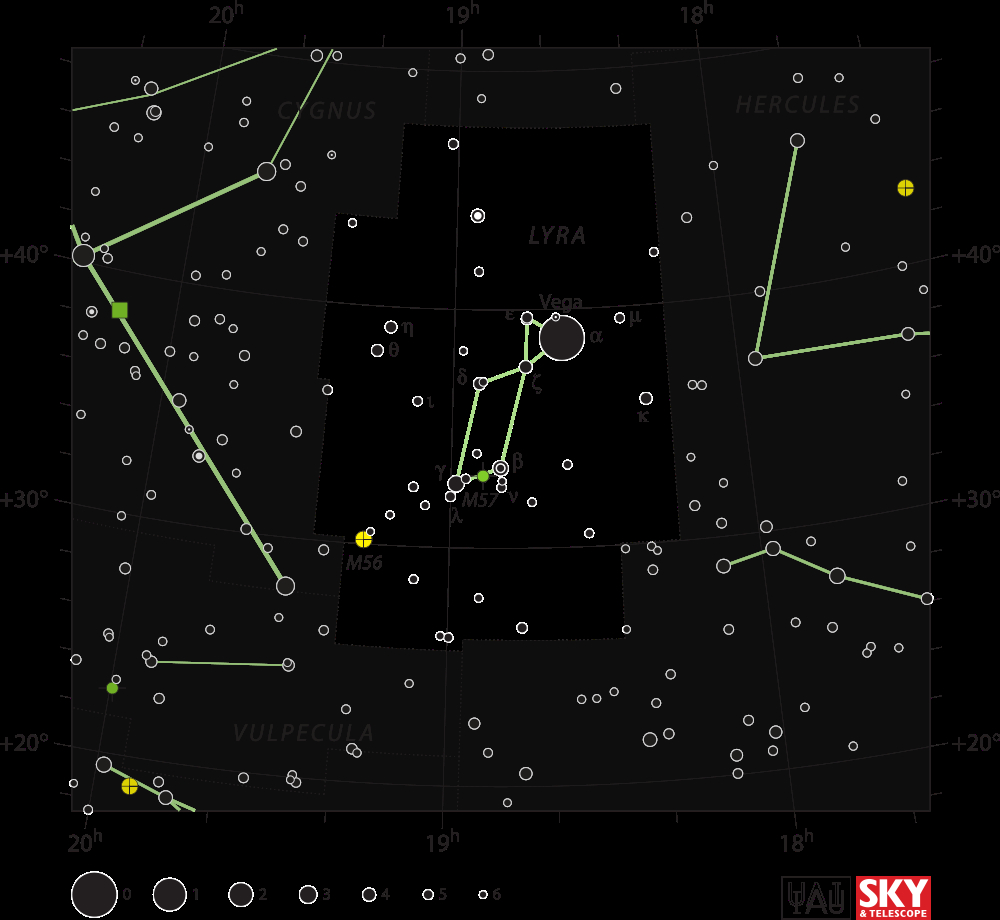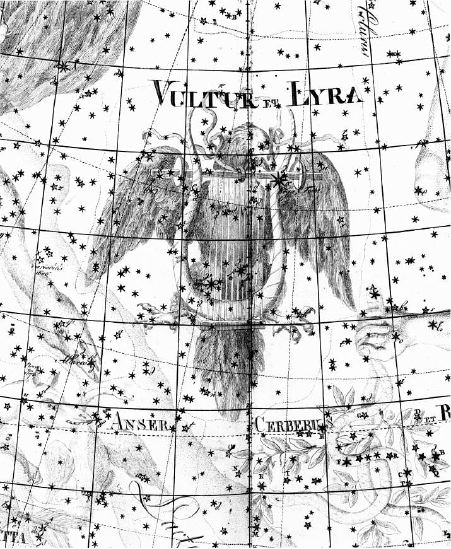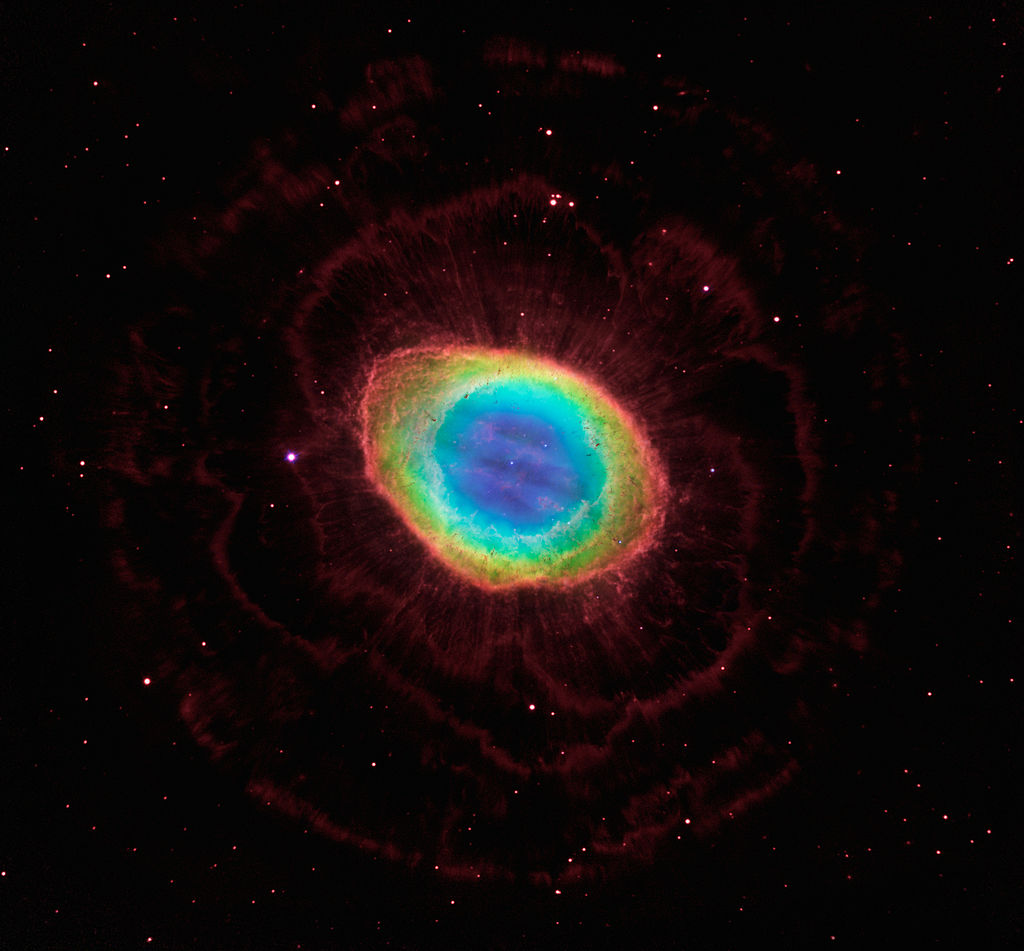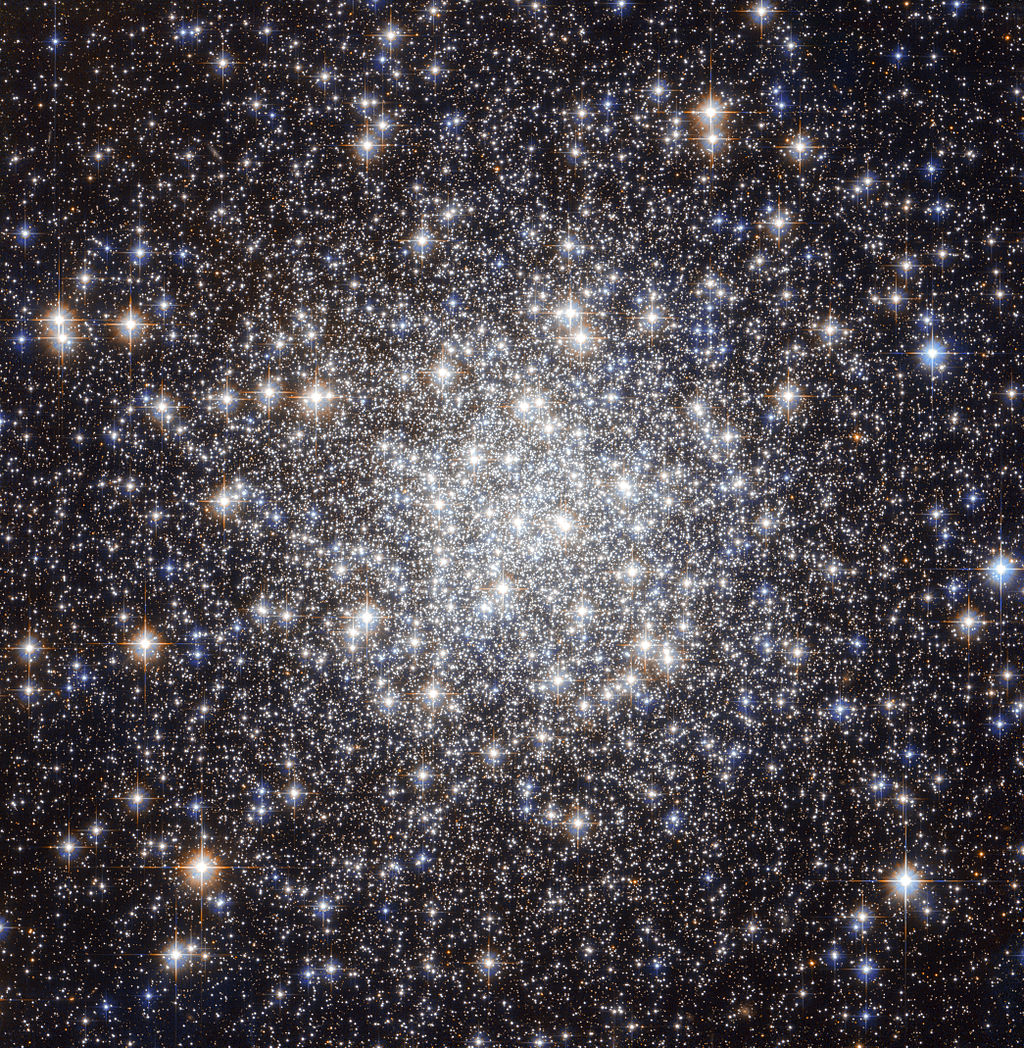
By IAU and Sky & Telescope magazine (Roger Sinnott & Rick Fienberg) [CC-BY-3.0], via Wikimedia Commons
"The Lyre"

By IAU and Sky & Telescope magazine (Roger Sinnott & Rick Fienberg) [CC-BY-3.0], via Wikimedia Commons
Abbreviation: Lyr
Genitive: Lyrae
Constellation family: Hercules
Nearest constellations: Cygnus, Draco, Hercules, and
Vulpecula
Right ascension: 18.84h
Declination: 36.82°
Visible between latitudes: +90° and -40°
Square degrees: 286
Luminary: Vega (Alpha Lyrae)
Named stars: Vega, Sheliak, Sulafat, the Double Double
Notable deep sky objects: M56, M57 (the Ring Nebula)
Lyra is a small constellation in the Northern Hemisphere that is best seen in August.
The constellation's brightest star, Vega, is the fifth-brightest star in the night sky. Vega forms an asterism known as the Summer Triangle with stars Altair from Aquila and Deneb from Cygnus.
Lyra contains the location of the "Double Double" star, a quadruple star system that appears as a single point of light when viewed without a telescope.
This part of the sky is also home to the Lyrid meteor shower, which occurs every year from April 16-25.

By Jacopo Montano (Uranographia, Johann Bode) [CC-BY-SA-3.0], via Wikimedia Commons
According to Greek mythology, Lyra represents the lyre, a musical instrument invented by the god Hermes when he strung cow-gut strings across a tortoise shell. Hermes gave the lyre to his brother Apollo, who in turn gave it to Orpheus. Orpheus could play the lyre so well that he charmed all living things with his music.
In addition to his music, Orpheus is known for the story of his attempt to bring his wife Eurydice back from the dead. When Eurydice died from a snake bite, Orpheus went down into the underworld and convinced Hades and Persephone to let him take his wife back to the land of the living. However, the agreement was conditional: if Orpheus looked back at Eurydice while he led her out of the underworld, he would lose her permanently.
As Orpheus and Eurydice reached the end of their journey, Orpheus forgot the instructions he was given and looked back before they reached the surface, consequently losing Eurydice a second time.
M57 (the Ring Nebula):

By ESA/Hubble [CC-BY-3.0], via Wikimedia Commons
M56 (globular cluster):

By NASA & ESA, acknowledgement: Gilles Chapdelaine [CC-BY-3.0], via Wikimedia Commons
NGC 6745 (colliding galaxies):

By NASA Goddard Space Flight Center (The Goddard Library) [Public domain], via Wikimedia Commons